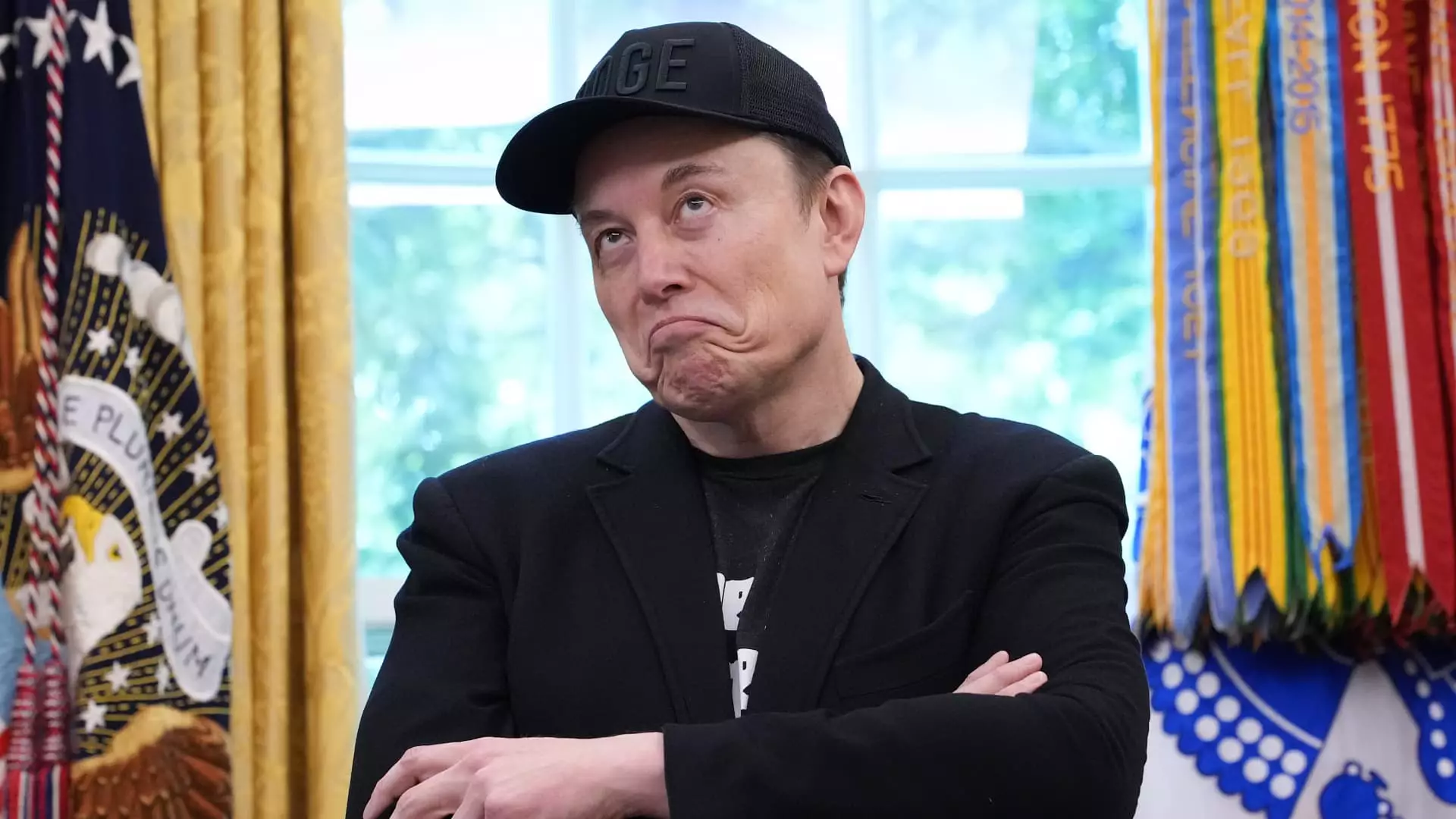In the aftermath of the recent legislative debate, it is evident that the intertwining of corporate interests and political narratives has become increasingly opaque and problematic. Elon Musk’s vocal opposition to the spending bill, particularly his critique of its widening debt implications and its impact on energy policy, exemplifies how business leaders leverage their platforms to sway public opinion and legislative outcomes. Musk’s personal stake in clean energy and electric vehicles fuels his resistance to cuts that undermine these sectors, revealing a complex dynamic where economic self-interest intersects with national policy. Instead of a neutral observer, Musk positions himself as a moral arbiter, shaping debates based on his corporate thriving and ideological preferences. This raises concerns about the undue influence of wealthy executives within democratic processes, threatening to distort priorities away from sustainable fiscal stewardship toward short-term corporate gains.
Fiscal Responsibility or Political Opportunism?
The debate over the debt implications of the bill exposes a fundamental fissure in political philosophy. The Congressional Budget Office’s projection of a $3.4 trillion increase in national debt over a decade signals a potential fiscal crisis—yet, the White House dismisses these warnings as partisan exaggerations. The reality remains that expansive tax cuts and increased spending without corresponding revenue generation threaten long-term stability. While proponents portray the bill as a necessary stimulus, critics argue it exemplifies shortsighted political maneuvering that prioritizes immediate gains over future resilience. In this light, Musk’s label of the bill as “DEBT SLAVERY” reflects a broader concern: that reckless fiscal policies are essentially indebting future generations to pay for today’s political expedience. It is an uncomfortable truth that, without prudent restraint, America risks a debt spiral that could undermine stability and prosperity.
Energy Policy and the Future of Innovation
Musk’s fierce opposition to the bill’s cuts in renewable energy incentives spotlights a critical battleground: the race for technological and environmental leadership. The rollback of tax credits for solar, wind, and electric vehicles signals a retreat from innovation that could compromise America’s competitiveness and environmental goals. Musk, as a prominent advocate for electric mobility, highlights the contradiction of government policy favoring short-term budget balancing over long-term technological advancement. His stance underscores a pivotal question: should national policy prioritize immediate fiscal austerity at the expense of strategic investments in energy independence and modern industries? The answer, in a center-right liberal context, arguably leans toward fostering innovation and maintaining a competitive edge—only through balanced fiscal discipline can sustainable growth be achieved without sacrificing environmental commitments.
The Political Divide and the Future Trajectory
Ultimately, the debate underscores a widening ideological chasm: between those who see responsible spending and sustainable debt levels as essential foundations for economic stability, and others who prioritize immediate political gains, often at the expense of long-term plans. Musk’s outspoken criticism, layered with his business interests, is reflective of a broader skepticism among center-right liberals toward reckless spending and the populist narratives that often accompany it. As America navigates its fiscal and technological future, the challenge will be to reconcile these conflicting priorities—championing innovation and fiscal responsibility without succumbing to short-term political expediency. If the political establishment fails to strike this balance, the nation risks not only economic instability but also the erosion of its innovative edge, which is vital for national growth and security.

